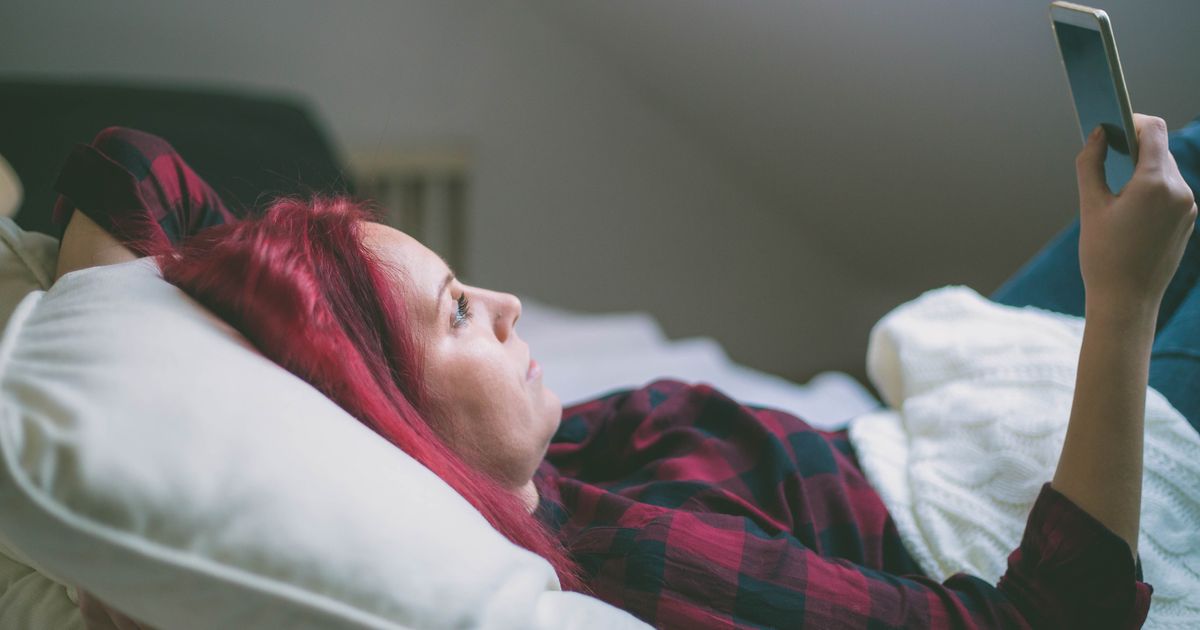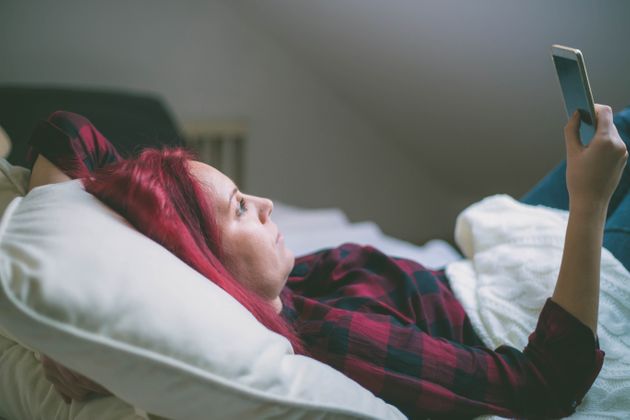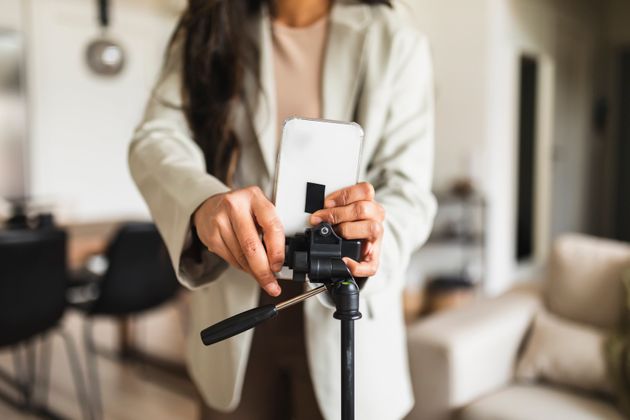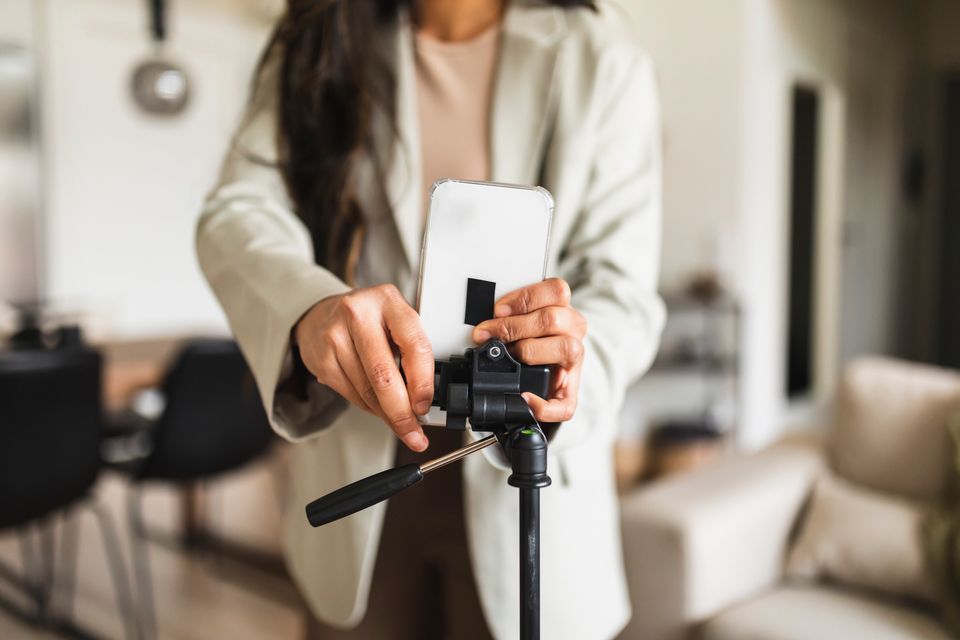With our quirks and personal traditions, no two Christmases are the same. And – at the risk of sounding like a cheesy Christmas ad – that’s what makes the holidays so special.
Ahead of this year’s festivities, we asked readers across the country to share what they’ll be doing come Christmas day.
Advertisement
Some of you are heading to church, others to the pool. Some are looking forward to family time, others will kick back with friends – or cats. And the food? If you’re uninspired by traditional turkey fare, how does cottage pie, chicken Kyiv, or a Zimbabwean feast sound?
However you’re spending the day, have a happy one.
‘I’m a working Santa, Christmas is my day off’
Michael Facherty, who’s 71 and based in Caversham, and has played the role of Father Christmas for nearly 40 years. On December 25th he’ll be having a well-deserved break.

Michael Facherty
“In the run up to Christmas a working Santa has many jobs. Among them is recording videos for clients, this year including a charity pop single, various corporate jobs including parties, and grottos. My favourite this year was being Santa on Hobbs of Henley Santa Cruises. Work with individual families includes Zoom calls and home visits.
Advertisement
“I often have a charity visit on Christmas Day but not this year, so I’ll have a lie in. The day starts with some presents and then I have my special Christmas lunch. My wife and son are vegans, but Matt makes me cottage pie with steak mince as a special treat. I’ll watch the Richard Attenborough version of Miracle on 34th Street at some point during the day. Boxing Day is my favourite day, because our grandchildren visit us.”
‘My British friends are now family.’
Nishtha Goel, the founder of sustainable brand Unnaaty, is 32 and based in London. She’ll be spending her fourth Christmas in the UK with friends, who she calls her “chosen family”.

Nishtha Goel
“I am from India and have been living in the UK since 2018. I don’t have any family here, but have found a friend who is my chosen family and since 2019 it is has become a tradition that I spend Christmas at her place, with a few other friends. What could have been a lonely day is not, because my British friends are now family.
“I am a vegetarian so, while my friends enjoy turkey, they are thoughtful enough to cook a separate vegetarian meal for me, which includes vegetarian stuffing, peas, carrots, Brussel sprouts, to name a few things. I enjoy every bit of the traditional Christmas dinner, it is such a beautiful way of bringing families together.
Advertisement
“My favourite part of the day is late evening, when we play silly board/card games and just have a relaxed time with each other, full of smiles and laughter.”
‘It is my favourite park run of the year.’
Robin Barwick, aged 50, is the event director Royal Tunbridge Wells parkrun. On Christmas day he’ll be helping 200-300 runners start the day in high spirits.
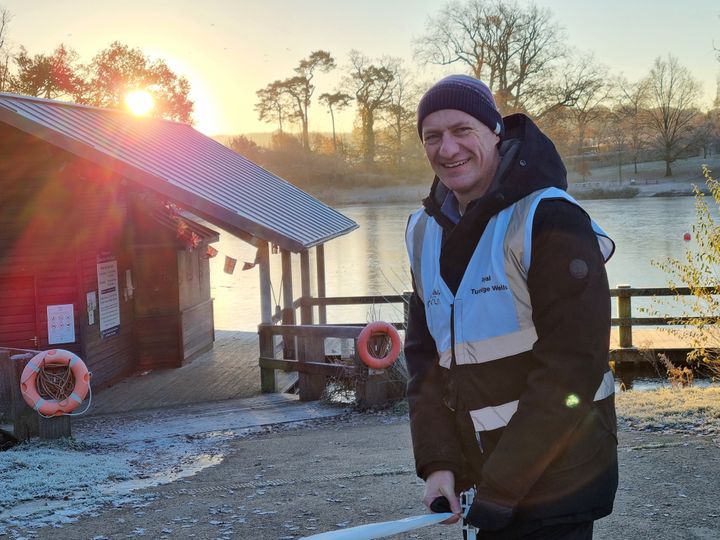
Robin Barwick
“I will be run director at RTW parkrun this Christmas morning, for what has become one of our best attended fixtures. It is my favourite parkrun of the year.
Between 200 and 300 runners and walkers are likely to show up for our 9am start, along with around 35 volunteers.
“Christmas morning parkruns have a special atmosphere. Many come in
festive fancy dress, with anything from reindeer headbands, elf costumes, the full Father Christmas outfit or maybe a Christmas tree disguise.
Advertisement
“Runners can take the 5k run competitively if they want to but on Christmas Day most people treat it as an opportunity to get some fresh air and exercise with friends and family without worrying about their finish time. It is a very social occasion and as our cafe in Dunorlan Park will be closed many will bring their own refreshments to enjoy after their run. They are not always alcohol-free.”
‘I’ll sleep the whole way through Christmas day’
Marlene Bayuga, 59, lives in Morden, Surrey and works as a Marie Curie healthcare assistant in the community covering Southwest London and sometimes Kent.

Marie Curie
“This Christmas I will be working throughout the night from 10pm until 7am. On Christmas day I will sleep during the daytime, and I will go for Christmas supper at my brother’s house, where we have roast turkey with all the trimmings. Then I will leave at 9pm to go to work and I will bring a mince pie and some Christmas pudding with me!
“When I arrive to my patients’ house I greet them with Christmas greetings and reassure their family that their loved one will be cared for, monitored, and supported during the night so that they can have a restful sleep. It can reassure them to know that someone is there with their loved one, so they won’t be alone overnight.
Advertisement
“I work during Christmas because someone in the community will always need my care at the end of their life, and because everyone deserves to have a good end of life experiences, both patients and their families. My family completely support and understand this. I know I’m there to give light during what can be a really difficult time for them.”
‘We go to church to celebrate Jesus’ birthday’
Nicole Bateman, 34 from Bournemouth, is a mum of two, author and owner of A Box Full of Joy. She’ll be celebrating Christmas by attending church and spending time with her family.

Nicole Bateman
“We start the day with the kids coming into our bed to open their stockings, then we have gammon and eggs with orange juice for breakfast and then open our presents under the Christmas tree.
“We then go to our church to celebrate Jesus’ birthday and then head over to grandparents for Christmas lunch, then a walk after that.
Advertisement
“I have a daughter who is three and a son who is six, and my son has epilepsy. He was diagnosed in July 2020 and has yet to find a medication to control his seizures. Last Christmas, he had five seizures over the four-day period, so by keeping to familiar things (like waking up at our house and going to our church like we do on a normal Sunday) it keeps some routine and stability to the day, which hopefully limits seizures.
“Christmas time can sometimes cause sensory overload and seizures for our boy, so we have to get the balance between too exciting (excitement is one of his seizure triggers) but then still making it a fun day.”
‘I’m solo cat-sitting – and I can’t wait’
Charlotte Lingard, who’s 34 and based in Kent, is looking forward to spending Christmas with some feline friends.

Charlotte Lingard
“I will be cat-sitting a cat called Lola in Blackheath over Christmas for a couple who are abroad for the Christmas holidays.
Advertisement
“I plan to spend my day eating all the festive party foods I enjoy, cuddling Lola and making sure she is spoiled; also exploring Blackheath and Greenwich, as it is not an area of London I am familiar with, but I have heard a lot of nice things about it.
“I have been doing cat-sitting on and off for nearly a year now. It started when my flat did not allow pets, and I was missing feline company whilst working remotely. I use two websites to find and apply for cat sits, I have had five star reviews so far.
“I am completely happy in my own company, so I am looking forward to it!”
‘I swim then cook the kids’ favourite: Chicken Kyiv’
Sue Bordley, who’s 51 and from the Wirral, writes swimming-related books and will be heading the pool for her daily dip on Christmas morning.

Sue Bordley
“On Christmas Day, I’ll get up at about 7.15 am and have a quick coffee before heading to the pool, which opens at 8am that day. It’s always nice to have a chat to Julie, Paula and Harry, my fellow die-hard swimmers who are there every morning.
Advertisement
“I’ll swim for an hour. Swimming got me over a breakdown six years ago. It’s my release, my lifeline – why on earth would I not want to have that on the day that’s supposed to be the best of the year?
“After my hour’s swim and a lovely relaxation boost in the hot tubs, I go home to spend the day with my husband Mark (48) and sons, Jack and Olly (15 and 12).
“While the boys play their new computer games, I prepare a (reasonably) traditional Christmas meal: I make the usual roast potatoes and vegetables, but we don’t have turkey, choosing roast pork instead and the boys are allowed to have their favourite Chicken Kyiv. At Christmas, everyone should have what they like – and it’s only one more dish to wash.”
‘I’m setting my own solo Christmas traditions’
Patience M. Chigodora, a 30-year-old spiritual life coach from Nottingham, is using Christmas to have some me-time.

Advertisement
“This year I’m doing things differently. My Christmas isn’t about being with family and friends; it’s about me. I actually want to rest, recover and feel replenished in the New Year which honestly last year I didn’t after spending a lot of my time travelling around the UK to be with family and friends.
“I am planning a few days filled with candle-lit baths, PJs, feasting on all my favourite Zimbabwean and English infused dishes paired with my fave red wine of course. Binging on my favourite Christmas movies and series (like How to Ruin Christmas series on Netflix), I might pop to the cinema to watch the new Avatar movie, go on walks and I’m allowing freedom for spontaneity and going with the flow.
“It’s really important to me this year that I celebrate Christmas how I want to – not how I am expected to. I will be seeing family and friends here and there, focusing on quality time rather than quantity, but 80% of the period, including New Year, will be spent basking within my inner-verse.”
‘We Zoom our families and celebrate online’
Viva O’Flynn, who’s 40 and based in Gloucester, enjoys spending a cosy Christmas at home with her husband, John. They’ll spend the afternoon on Zoom, celebrating with family abroad.

Viva O’Flynn
Advertisement
“Christmas Day starts with me waking up next to my husband, John. He cooks brunch for us, eggs florentine or eggs Benedict with salmon. Then, we head to our Christmas tree to open presents. I open each gift with a kiss, a ‘thank you’ and ‘I love you’. He does the same.
“It’s just the two of us celebrating Christmas in person, because his family are in Ireland, mine are in the Philippines. We log into Zoom and say our Christmas greetings to them, and we play some games with them online. Some of my cousins even sing Christmas tunes.
“There is nothing like being with family to celebrate in person: hugging them, kissing them on the cheek, holding their hands, eating meals with them. But it is the pandemic and flu season, and flights back home are doubly expensive. We’ll wait until after the holidays to reunite with them in person. The next best thing is seeing them, hearing their voices, and celebrating Christmas with them virtually.”














